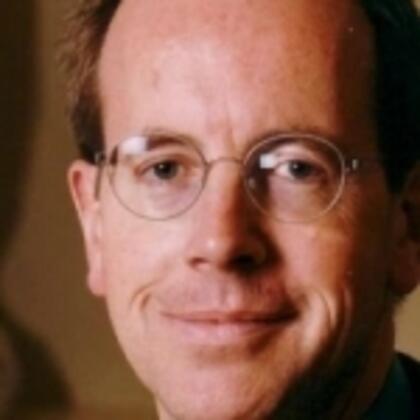Big Data in the UK Biobank: Opportunities and Challenges
Share
- Details
- Text
- Audio
- Downloads
- Extra Reading
The UK Biobank allows scientists to access a vault of data on health outcomes, genotyping and biomarkers from 500,000 people, enabling a better understanding of a wide range of chronic, painful and life-threatening diseases that typically strike from middle age.
Professor Rory Collins is the Principal Investigator and in this lecture he will examine the specific opportunities, ethical implications and challenges related to the handling and use of big health data.
Lecture followed by Reception.
Download Text
6 November 2014
Big data in the uk biobank: opportunities and challenges
Professor Sir Rory Collins
Faculty of Pharmaceutical Medicine
This lecture has been organised in conjunction with the Faculty of Pharmaceutical Medicine of the Royal Colleges of Physicians of the UK, as part of the Faculty’s 25th Anniversary celebrations.
Sir Rory is British Heart Foundation Professor of Medicine and Epidemiology, and Head of the Nuffield Department of Medicine, within the University of Oxford and a Fellow of St Cross College. He is the Principal Investigator and Chief Executive of the UK Biobank (https://www.ukbiobank.ac.uk/).
UK Biobank is a major national health resource with the aim of improving the prevention, diagnosis and treatment of a wide range of serious and life-threatening illnesses – including cancer, heart diseases, stroke, diabetes, arthritis, osteoporosis, eye disorders, depression and forms of dementia. UK Biobank recruited 500,000 people aged between 40-69 years in 2006-2010 from across the country to take part in this project. They have undergone measures, provided blood, urine and saliva samples for future analysis, detailed information about themselves and agreed to have their health followed.
Despite the benefits that this collecting of data could bring to public health, there are far-reaching ethical considerations, including consent, confidentiality, anonymisation, the stewardship of data and samples, appropriate access to information for commercial organisations, rules on usage and the sharing of data and findings. With the current controversies surrounding the NHS ‘care.data’ project, this is a timely topic, and will give an opportunity to address the delicate balance between big data and societal needs, the benefits versus the risks of sharing data, and what lessons can be learnt from the UK Biobank.
About Professor Sir Rory Collins
Professor Collins was appointed as an Honorary Fellow of the Faculty of Pharmaceutical Medicine in 2004. This appointment was made in recognition of Professor Collins’ outstanding contributions in the fields of pharmaceutical medicine and clinical trials. Since 1986, Professor Collins has also been co-director of Oxford University's Clinical Trial Service Unit and Epidemiological Studies Unit (https://www.ctsu.ox.ac.uk/). In 1996, he was appointed Professor of Medicine and Epidemiology at Oxford, supported by the British Heart Foundation. He was knighted in 2011 for his services to science. In 2013, he brought together the epidemiological and related research groups at Oxford University into the new Nuffield Department of Population Health, which he heads.
His work in the establishment of large-scale epidemiological studies of the causes, prevention and treatment of heart attacks, other vascular disease and cancer, and developing approaches to the combination of results from related studies or ‘meta-analyses’ have established him as one of the foremost clinical trialists alive today. Professor Collins’ innovative development and leadership of the International Studies of Infarct Survival (ISIS clinical trials) – four randomized controlled trials of several drugs for treating suspected acute myocardial infarction, involving more than 134,000 patients from over 20 countries between 1981 and 1993 – has proved particularly influential. Professor Collins has also performed a number of notable meta-analyses which include those of anti-platelet therapy, fibrinolytic therapy and cholesterol-lowering therapy and, in collaboration with others, blood pressure epidemiology and trials.
About the Faculty of Pharmaceutical Medicine
The Faculty of Pharmaceutical Medicine (FPM) is a professional membership organisation and standard-setting body, with 1,500 members, who are practising or retired pharmaceutical physicians or those with a professional interest in the specialty. Pharmaceutical physicians work in the pharmaceutical industry, drug regulatory authorities and contract research organisations, and also as independent consultants. Founded in 1989, we are a Faculty of the Royal Colleges of Physicians of the UK. The FPM is a registered charity and therefore ultimately exists for the benefit of patients and the public. Charity number 1130573. Our mission is to advance the science and practice of pharmaceutical medicine by working to develop and maintain competence, ethics and integrity and the highest professional standards in the specialty for the benefit of the public.
Pharmaceutical medicine was recognized by the GMC as a full medical specialty in 2002. FPM coordinates Pharmaceutical Medicine Specialty Training (PMST), which can be undertaken after ST2 level. PMST leads to specialist registration with the GMC.
Throughout 2014 the FPM has been celebrating its anniversary with a series of special projects and events designed to reflect on the development of pharmaceutical medicine over the past 25 years and look to the future of medicines development. The UK Biobank is just one example of the ways in which the science of pharmaceutical medicine is developing.
To find out more go to the FPM website – www.fpm.org.uk
Follow the FPM on Twitter – @FacultyPharmMed
This event was on Thu, 06 Nov 2014
Support Gresham
Gresham College has offered an outstanding education to the public free of charge for over 400 years. Today, Gresham College plays an important role in fostering a love of learning and a greater understanding of ourselves and the world around us. Your donation will help to widen our reach and to broaden our audience, allowing more people to benefit from a high-quality education from some of the brightest minds.


 Login
Login







